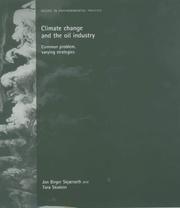| Listing 1 - 2 of 2 |
Sort by
|
Book
ISBN: 9781315269467 1315269465 1351979159 1138284181 9781138284180 9781351979139 Year: 2017 Publisher: London ; New York : Routledge,
Abstract | Keywords | Export | Availability | Bookmark
 Loading...
Loading...Choose an application
- Reference Manager
- EndNote
- RefWorks (Direct export to RefWorks)
The capacity to abuse, or in general affect the enjoyment of human, labour and environmental rights has risen with the increased social and economic powerthat multinational companies wield in the global economy. At the same time,it appears that it is difficult to regulate the activities of multinational companiesin such a way that they conform to international human, labour and environmentalrights standards. This has partially to do with the organization of companiesinto groups of separate legal persons, incorporated in different states, aswell as with the complexity of the corporate supply chain. Absent a businessand human rights treaty, a more coherent legal and policy approach is required.Faced with the challenge of how to effectively access the right to remedy inthe European Union for human rights abuses committed by EU companies innon-EU states, a diverse research consortium of academic and legal institutionswas formed. The consortium, coordinated by the Globernance Institute forDemocratic Governance, became the recipient of a 2013 Civil Justice ActionGrant from the European Commission Directorate General for Justice. A mandatewas thus issued for research, training and dissemination so as to bringvisibility to the challenge posed and moreover, to provide some solutions forthe removal of barriers to judicial and non-judicial remedy for victims of business relatedhuman rights abuses in non-EU states. The project commenced inSeptember 2014 and over the course of two years the consortium conductedresearch along four specific lines in parallel with various training sessions acrossEU Member States.The research conducted focused primarily on judicial remedies, both jurisdictionalbarriers and applicable law barriers; non-judicial remedies, both to company based grievance. The results of this research endeavour make up the content ofthis report whose aim is to provide a scholarly foundation for policy proposalsby identifying specific challenges relevant to access to justice in the EuropeanUnion and to provide recommendations on how to remove legal and practicalbarriers so as to provide access to remedy for victims of business-related humanrights abuses in non-EU states. Published
Liability for human rights violations --- Tort liability of corporations --- Tort liability of nonprofit organizations --- Corporations --- Nonprofit organizations --- Liability (Law) --- multinationals --- european union --- human rights --- Conflict of laws --- Equinor --- Member state of the European Union --- Permanent Court of Arbitration --- Rome II Regulation --- Siemens --- Tort

ISBN: 1781700478 1280734515 9786610734511 1847790828 1423706544 0719065585 0719065593 9781280734519 9781526137296 6610734518 9781847790828 9781423706540 1526137291 Year: 2003 Publisher: Manchester : New York : Manchester University Press : Distributed exclusively in the USA by Palgrave,
Abstract | Keywords | Export | Availability | Bookmark
 Loading...
Loading...Choose an application
- Reference Manager
- EndNote
- RefWorks (Direct export to RefWorks)
Multinational corporations are not merely the problem in environmental concerns, but could also be part of the solution. The oil industry and climate change provide the clearest example of how the two are linked; what is less well-known is how the industry is responding to these concerns. This volume presents a detailed study of the climate strategies of ExxonMobil, Shell and Statoil. With an innovative analytical approach, the authors explain variations at three decision-making levels: within the companies themselves, in the national home-bases of the companies, and at an international level. The analysis generates policy-relevant knowledge about whether and how corporate resistance to a viable climate policy can be overcome. The analytical approach developed by the authors is also applicable to other areas of environmental degradation where multinational corporations play a central role. The book is invaluable to students, researchers and practitioners interested in national and international environmental politics and business environmental management.
Petroleum industry and trade --- Gas industry --- Industrial management --- Greenhouse gas mitigation. --- Climatic changes. --- Environmental aspects. --- Changes, Climatic --- Climate change --- Climate changes --- Climate variations --- Climatic change --- Climatic changes --- Climatic fluctuations --- Climatic variations --- Global climate changes --- Global climatic changes --- Abatement of greenhouse gas emissions --- Emission reduction, Greenhouse gas --- Emissions reduction, Greenhouse gas --- GHG mitigation --- Greenhouse gas abatement --- Greenhouse gas emission reduction --- Greenhouse gas emissions reduction --- Greenhouse gas reduction --- Mitigation of greenhouse gas emissions --- Reduction of greenhouse gas emissions --- Natural gas industry --- Environmental aspects --- Climatology --- Climate change mitigation --- Teleconnections (Climatology) --- Pollution prevention --- Energy industries --- Changes in climate --- Climate change science --- Global environmental change --- environmentalism --- oil --- exxon --- multinational --- Climate change (general concept) --- Equinor --- ExxonMobil --- Fossil fuel --- Kyoto Protocol --- Netherlands --- Norway --- Petroleum industry --- Politics of global warming --- Royal Dutch Shell
| Listing 1 - 2 of 2 |
Sort by
|

 Search
Search Feedback
Feedback About UniCat
About UniCat  Help
Help News
News